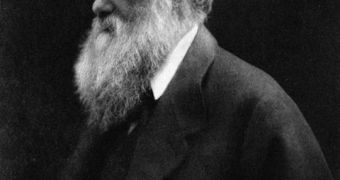With less than a year under its belt, Quantum Darwinism is already an idea that is getting more and more attention with each passing day. First proposed by Los Alamos National Laboratory (LANL) physicist Wojciech Zurek, it essentially correlates quantum and classical physics. This means that, if proven, it could be one of the most important revelations in the world, ever. It attempts to explain why the subatomic level, of quantum particles, is subjected to the laws of quantum physics, whereas larger scale systems, from the atomic level up, are governed by classical physics.
One of the main things that Zurek proposes as a means of getting a grasp of his theory is for physicists to stop considering the environment as a nuisance. At this point, researchers can observe and isolate quantum effects inside very small structures, but their main complaint is that the environment constantly gets in the way, in the sense that the effects they are trying to observe “leak” out of the structure, rendering whatever experiment they are conducting useless.
On the other hand, Zurek proposes that the environment in which quantum effects are observed is in fact an information channel. As such, knowing the properties of this channel could theoretically help particle physicists understand the basic concept underlying Quantum Darwinism. The expert goes on to say that, at a macroscopic level, we always take the environment into account when analyzing a system. Even computer monitors transmit their information to us via an environment, which is, fortunately, air.
Zurek believes that we can only observe a small part of the environment at one time, namely only the one that is of direct interest to us, the one that reveals the systems we are targeting for analysis, or looking for. This is, he says, the essence of his idea. Darwin's name enters the equation because the physicist believes that only data that is fit enough to survive the process of transmission reaches the eye of the observer, which is us. In this sense, he believes, the phenomena we observe in classical physics are nothing but “pointer states,” the remnants of the original signal, which also included quantum data.
However, the second category was not fit enough to survive the transmission process, and is therefore doomed to not being observed. This is one of the main reasons why physicists now need to isolate quantum effects from their environment. If they “leak,” then they do not survive the transmission process, and are lost forever. To an external observer, such as ourselves, the effects simply disappear for all intents and purposes, Technology Review reports.

 14 DAY TRIAL //
14 DAY TRIAL //